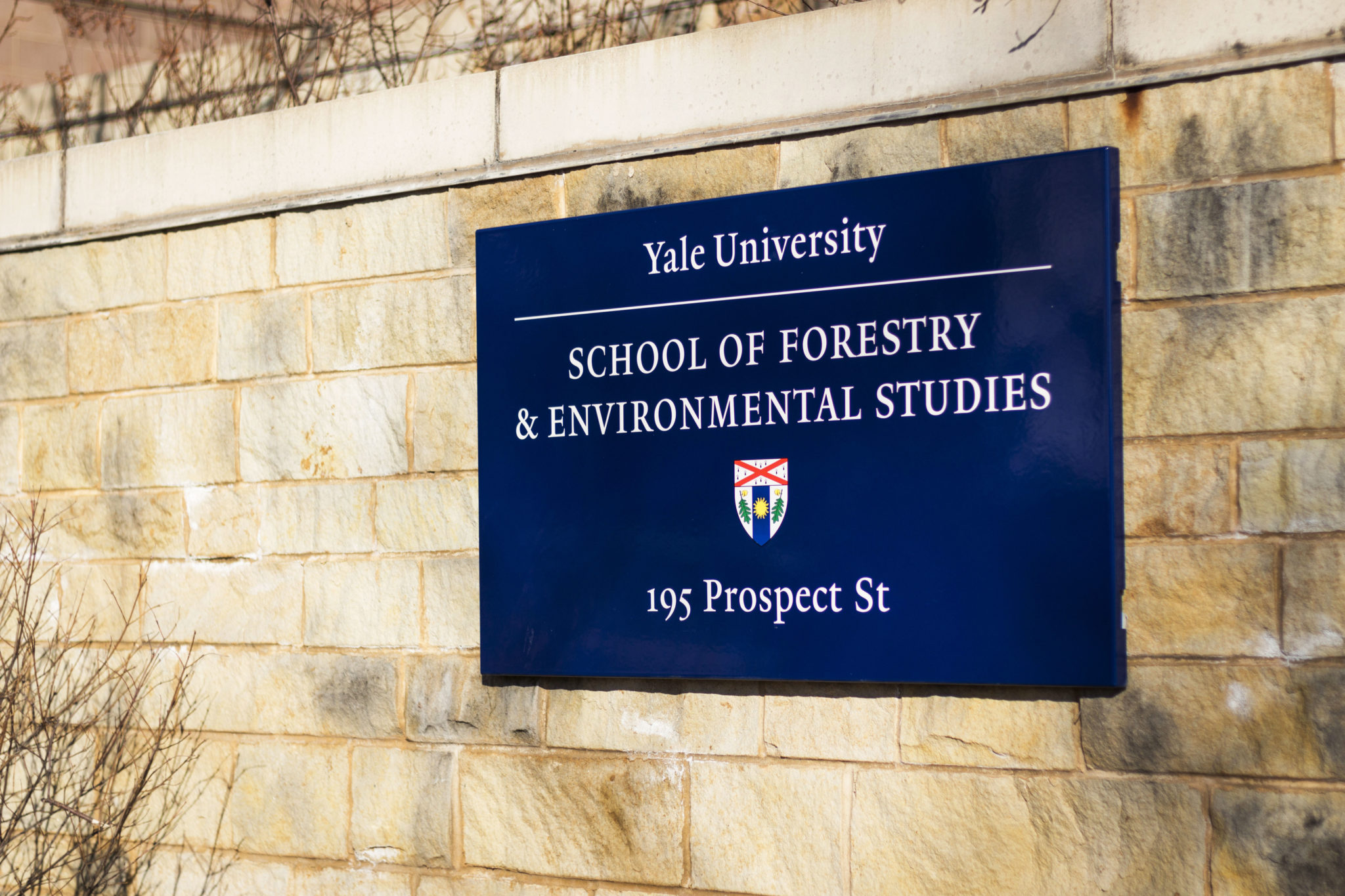
Yale Daily News
This past weekend, more than 100 leading national authorities on climate change and sustainability attended the Yale Environmental Dialogues — a workshop series at the School of Forestry & Environmental Studies.
During the series, discussions focused on ideas related to strengthening the environment and building a more sustainable future. Though the workshop series followed the Chatham House Rule, where speakers and participants could not be identified by name or affiliation following the event, the ideas discussed during the weekend will be featured in a book that is slated for release in the fall of 2019, according to Kevin Dennehy, associate director of communications at F&ES. The book, titled “A Better Planet: 37 Big Ideas for a Sustainable Future,” will feature authors such as Nobel Prize recipient and Sterling Professor of economics William Nordhaus and esteemed conservation biologist Thomas Lovejoy.
One of the panel discussions, held in Burke Auditorium on Friday afternoon, focused on innovation, technology and environmental strategies. As soon as the attendees entered the auditorium, they were encouraged to pick up copies of the essays on which the panelists would be speaking about. The three panelists, each of a unique discipline, spoke briefly about the subject on which their essay was written.
The first panelist spoke on the importance of innovation and the lack of incentives for innovation in the environmental arena. He explained that in the 20th century, individuals and governments had taken a “red light” approach to innovation in the environment and had only been told to “stop.” He emphasized the need for a 21st century of “green lights,” where innovators and entrepreneurs are told not just when to stop, but when to go and blaze ahead.
“We need to incentivize entrepreneurs and creators to give us a clean energy future,” the first panelist said.
The next panelist focused on the pace of innovation, clarifying that the biggest issue is not the number of options we have available, but the time it takes to implement and institute those options.
The final panelist spoke about options for powering the planet with renewable energy. He briefly delved into the current status of solar and wind energy and touched upon the potential for bio-inspired energy systems.
After the speakers were finished, the panel’s moderator opened the floor to questions. Several of the attendees asked questions about how to change the status quo regarding current environmental policy and action.
“People cling to the status quo even if it’s not working,” the first panelist said. “We have to create a space for disruption. We need to ensure that individuals coming out on the short end are not thrown onto the streets. This is at the core of creating more innovation-oriented pathways.”
According to Dan Esty, the Hillhouse professor of environmental law and policy and the editor of the novel emerging from the workshop series, the next Environmental Dialogues will take place in August at the Aspen Institute in Aspen, Colorado. After that, the Dialogues will be held in Washington, D.C. in the early fall.
2019 marks the first session of the Yale Environmental Dialogues.
Madison Mahoney | madison.mahoney@yale.edu







